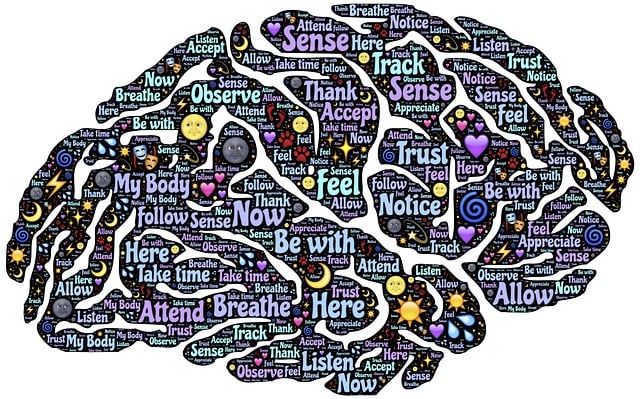הטיפול בבריאות הנפש בקרב קשישים דוברי עברית מציב אתגרים ייחודיים, במיוחד בהקשר תרבותי ולשוני. גישה טיפולית רגישה לתרבות חיונית כדי להתמודד עם הבדלים בהבעת בריאות הנפש ולספק טיפול יעיל. מודעות לנורמות חברתיות ופיתוח תוכניות התערבות מותאמות תרבותית יכולים לשפר את נגישות הטיפול ולהגביר את המודעות לבריאות נפשית בקרב האוכלוסייה הזו. טכניקות מתקדמות כמו ניתוח נתונים ופלטפורמות דיגיטליות מאפשרות מעקב והערכה מדויקים של טיפול, כולל שימוש בפודקאסטים חינוכיים בעברית כדי להעצים את הקהילה. גישה זו מקדמת תמיכה יעילה ומכוונת עבור Therapy for Elders Hebrew Speaking.
Mental health data analysis is a powerful tool for understanding and improving the well-being of Hebrew-speaking elderly populations. This article explores critical aspects, from deciphering unique cultural nuances in mental health data to implementing advanced techniques for effective therapy tracking. We delve into ethical considerations, the importance of personalized treatment plans, and predictive modeling’s role in enhancing care for this demographic. By integrating these insights, we aim to revolutionize therapy for elders speaking Hebrew.
- Understanding Mental Health Data in Hebrew-Speaking Elderly Populations
- The Challenges and Ethical Considerations in Data Analysis for This Demographic
- Advanced Techniques for Effective Therapy Tracking and Evaluation
- Interpreting Data to Personalize Treatment Plans for Cultural Sensitivity
- Enhancing Care through Predictive Modeling: A Case Study on Aging and Mental Wellbeing
Understanding Mental Health Data in Hebrew-Speaking Elderly Populations

הבנת נתוני בריאות הנפש בקרב אוכלוסיות של קשישים דוברי עברית היא משימה חשובה ומסועפת. בשל הבדלים תרבותיים ולשוניים, גישה לטיפול פסיכולוגי עבור קשישים דוברי עברית עלולה להיות מאתגרת. נתונים סטטיסטיים מראים כי יש חוסר ייצוג בקרב אוכלוסיות אלה בשירותי בריאות הנפש, מה שמוביל להזנחת צרכים פסיכולוגיים ייחודיים.
גישה תרבותית רגישות בטיפול הפסיכולוגי היא חיונית כדי לספק טיפול יעיל. מודעות לנורמות חברתיות וערכי תרבות שונים משפרת את יכולתו של המטפל ליצור קשר משמעותי עם המטופלים דוברי העברית. בנוסף, פיתוח תוכניות התערבות מותאמות תרבותית יכול לשפר את נגישות הטיפול ולקדם שיפור במודעות לבריאות הנפש ובניהול מצבי רוח.
The Challenges and Ethical Considerations in Data Analysis for This Demographic

Mental health data analysis for the Hebrew-speaking elderly population presents unique challenges and ethical considerations. One significant hurdle is ensuring cultural sensitivity and competency when interpreting complex data points. Many traditional therapeutic methods and assessment tools may not account for cultural nuances, potentially leading to misdiagnosis or inadequate care. For instance, symptoms of depression in different cultures can manifest uniquely, requiring specialized knowledge to recognize and accurately measure. Building empathy and understanding within the healthcare system is crucial; it involves training professionals in culturally responsive practices, promoting awareness of diverse mental health expressions, and fostering trust between caregivers and the elderly.
Additionally, privacy and confidentiality are paramount when dealing with sensitive mental health data. The Hebrew-speaking community, like many others, may have specific preferences and concerns regarding information sharing. Ethical considerations include obtaining informed consent, ensuring data protection, and adhering to strict privacy regulations. Public awareness campaigns focused on destigmatizing mental health issues can also play a pivotal role in encouraging open dialogue and access to appropriate therapy for elders, such as Hebrew-speaking individuals who require culturally tailored treatment options, including therapy specifically designed for their linguistic and cultural backgrounds.
Advanced Techniques for Effective Therapy Tracking and Evaluation

In the realm of mental health care, advanced techniques are transforming therapy tracking and evaluation, particularly for vulnerable populations like Hebrew-speaking elders. Innovations such as data analytics and digital platforms offer precise insights into individual progress, enabling tailored interventions. These tools facilitate continuous monitoring, allowing therapists to adapt treatment strategies in real time, catering specifically to the unique needs of each client.
For instance, a well-structured Community Outreach Program Implementation can leverage technology to incorporate Mindfulness Meditation and Resilience Building exercises, enhancing therapeutic outcomes. By analyzing data collected from these programs, healthcare professionals can identify trends, assess the effectiveness of specific techniques, and make informed decisions to optimize care delivery. This evidence-based approach ensures that therapy remains dynamic, responsive, and ultimately, more successful in supporting mental well-being among Hebrew-speaking elders.
Interpreting Data to Personalize Treatment Plans for Cultural Sensitivity

When analyzing mental health data, particularly within diverse populations like Hebrew-speaking elders, interpreting the information becomes an art that requires cultural sensitivity. Mental health professionals must navigate the intricate landscape of individual experiences and societal norms to tailor therapy plans effectively. For elderly Hebrew speakers, cultural context plays a pivotal role in understanding their unique challenges. For instance, Burnout Prevention Strategies for Healthcare Providers might need adaptation to cater to the specific needs and beliefs of this demographic.
Risk Management Planning for Mental Health Professionals should encompass cultural competency when assessing risk factors. This includes recognizing the impact of language barriers, family dynamics, and traditional healing practices on an individual’s mental health. By integrating these insights, therapy can be designed to foster Social Skills Training, enhancing communication and support networks within this cultural framework. Such personalized approaches ensure that treatment plans resonate with clients, increasing adherence and ultimately improving outcomes.
Enhancing Care through Predictive Modeling: A Case Study on Aging and Mental Wellbeing

In today’s digital era, leveraging data for mental health care offers a promising avenue to enhance support for vulnerable populations, such as aging Hebrew-speaking elders. Predictive modeling techniques can play a pivotal role in identifying individuals at risk and tailoring interventions accordingly. A case study focusing on mental wellbeing among the elderly illustrates this potential. By analyzing various factors, including social connections, healthcare utilization, and self-reported symptoms, researchers developed models capable of forecasting an individual’s mental wellness trajectory.
This approach allows for proactive therapy for elders, enabling early intervention strategies to mitigate the onset or severity of conditions like anxiety. The study underscores the value of integrating data analysis into mental health care, particularly through the production of insightful Mental Wellness Podcasts that educate and engage the Hebrew-speaking community on topics related to Anxiety Relief. Such initiatives not only empower individuals but also foster a sense of community around mental wellness, ensuring more inclusive and effective support systems.
Mental health data analysis plays a pivotal role in enhancing care for Hebrew-speaking elderly populations. By understanding unique cultural aspects and navigating ethical challenges, advanced techniques enable personalized treatment plans that respect individual needs. Through interpretative methods focusing on therapy tracking and predictive modeling, healthcare providers can offer tailored interventions for improved mental wellbeing among elders receiving therapy for elders Hebrew speaking services. This integrated approach ensures culturally sensitive care, ultimately enriching the lives of this demographic.









